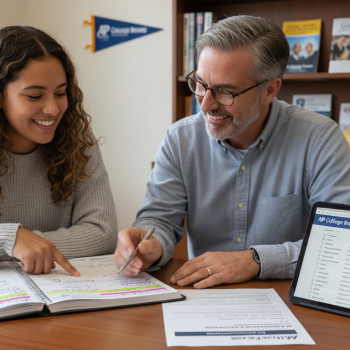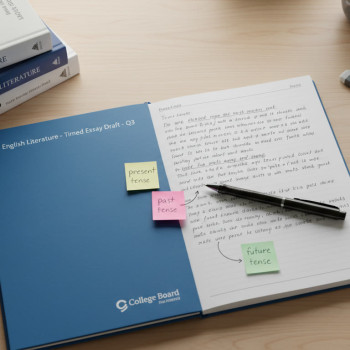Introduction: Why Dutch Technical Universities and AP Matter
For ambitious students dreaming of studying engineering, applied science, or technology abroad, Netherlands’ technical universities—especially Delft University of Technology (Delft) and Eindhoven University of Technology (TU/e)—are magnets for creativity, hands-on learning, and research excellence. If you’re coming from an American or international high-school system where Advanced Placement (AP) courses and exams are central, you might be wondering: how do my AP choices and scores map onto a competitive profile for Delft or TU/e? This post is written for students and families who want clear, human, and actionable guidance: what to take, how to present it, and how to make targeted improvements so your application stands out.
Quick Orientation: Delft vs TU/e — what makes them different?
Both universities are top-tier technical schools in the Netherlands, but they carry distinct cultures and strengths:
- Delft University of Technology (Delft) — A large, research-driven institution known for traditional engineering disciplines (civil, mechanical, aerospace) and a broad international student community. It has a reputation for rigorous fundamentals and strong design and research training.
- Eindhoven University of Technology (TU/e) — Often characterized by its tight industry linkages and focus on high-tech systems, electronics, and applied research. TU/e tends to emphasize collaboration with companies and interdisciplinary innovation.
Knowing the flavor of each school helps you tailor your AP choices, extracurricular emphasis, and application narrative.
How Admissions Teams View AP Courses and Scores
Admissions officers in Europe, including Delft and TU/e, look for academic readiness, problem-solving ability, and evidence that you can handle university-level STEM work in English. AP coursework signals both content exposure and academic seriousness. While each Dutch university has its own formal conversion or admission procedures for international credentials, the core idea is simple:
- Strong AP subject choices aligned with your intended major show preparedness (for engineering: Calculus, Physics, Chemistry).
- High AP scores (typically 4 or 5 in key subjects) strengthen academic credibility and sometimes allow course placement or credit.
- Complementary APs in math-adjacent, programming, or communication areas (Statistics, Computer Science, English) round out your profile.
Recommended AP Course Pathways by Intended Program
Below are sample AP course bundles for common technical majors. These bundles reflect both subject relevance and the narrative you might want to present in your application.
Mechanical / Aerospace / Civil Engineering
- AP Calculus BC (or AB + additional self-study): foundational math.
- AP Physics C: Mechanics (and Electricity & Magnetism if possible).
- AP Chemistry (helpful for materials and thermodynamics contexts).
- AP English Language or Literature: communication and academic writing readiness.
Electrical Engineering / Electronics / Computer Engineering
- AP Calculus BC.
- AP Physics C: Electricity & Magnetism (strongly recommended).
- AP Computer Science A (or Computer Science Principles with additional coding projects).
- AP Statistics can be a bonus for signal processing and data-driven areas.
Computer Science / Software Engineering
- AP Calculus BC (or AB + extra math exposure).
- AP Computer Science A — coding fundamentals and algorithms.
- AP Physics (helps with computational problem solving) or AP Statistics.
- AP English — for technical writing and communication.
Chemical or Materials Engineering
- AP Calculus BC.
- AP Chemistry (very important).
- AP Physics 1/2 or Physics C if available.
- AP Biology if you’re leaning toward biochemical materials.
Score Targets and What They Mean
AP scores are reported on a scale of 1–5. While expectations vary, here’s a practical approach for aiming your target scores when you apply to top Dutch technical programs:
- Aim for 4s and 5s in your primary STEM APs (Calculus, Physics C, Chemistry, CS A).
- 4s in AP English and AP Statistics add weight to your profile.
- If you have a 3 in a secondary AP, contextualize it with upward trends in grades or strong project work.
Real-world context
A 5 in AP Calculus BC plus a 4 in AP Physics C signals to admissions committees that you can handle the first-year calculus-physics sequence. But remember: admissions looks at the whole picture — grades, course rigor, recommendation letters, personal motivation, and projects.
Sample AP Profiles — How They Read to Admissions
These hypothetical profiles show how combinations of APs and extracurriculars create distinct stories.
| Profile | AP Courses | Scores | Extracurricular Highlights | Admission Signal |
|---|---|---|---|---|
| Fundamentals-Focused | Calculus BC, Physics C (Mech), Chemistry, English | 5, 4, 4, 4 | Robotics team captain, research internship | Strong technical foundation and leadership |
| Innovation-Oriented | Calculus BC, CS A, Physics 1, Statistics, English | 5, 5, 4, 4, 4 | App project, hackathons, startup internship | Practical coding chops and innovation |
| Lab and Research | Calculus AB, Chemistry, Biology, Physics 2 | 4, 5, 4, 4 | Research paper, science fair awards | Research potential for materials/chemicals |
How to Tell Your Story in an Application
AP scores are one piece of the narrative; the rest comes from how you present learning choices and accomplishments. Admissions committees want to see coherent intent and demonstrated growth. Here’s how to craft that narrative:
- Connect courses to projects: Don’t list APs as isolated achievements. If AP Physics helped you design a drone for a robotics competition, say so and describe what you learned.
- Show trajectory: If you moved from AP Calculus AB to BC or improved AP scores year over year, emphasize growth and increasing challenge.
- Highlight research and real-world impact: Internships, published science fair projects, or open-source contributions translate coursework into applied skills.
- Use recommendation letters strategically: Ask teachers who can speak to specific technical strengths or project leadership rather than generic praise.
Practical Study Strategies for Strong AP Performance
High AP scores require more than content knowledge; they demand exam strategy, consistent practice, and targeted feedback. Below are actionable strategies that work:
- Reverse-engineer the exam: Break the AP exam into its types of questions (MCQs, free response, lab-based problems) and build practice routines for each.
- Active practice over passive review: Solve past free-response questions under timed conditions and debrief mistakes immediately.
- Integrate projects with study: Build a side project (coding, design, lab simulation) that keeps conceptual knowledge active and shows initiative on your application.
- Peer study and teaching: Explaining tough topics to classmates is one of the fastest ways to deepen understanding.
- Get targeted feedback: 1-on-1 tutoring can diagnose weak spots and design tailored plans; services like Sparkl’s personalized tutoring can provide that kind of focused guidance, mixing expert tutors with AI-driven insights to monitor progress.
Timing: When to Take APs and Tests
Planning your course load across high school matters as much as the scores themselves. Consider these timing guidelines:
- APs you need for technical majors (Calculus, Physics, Chemistry) should be completed by the end of Grade 11 or early Grade 12 to show readiness and to allow time for retakes if needed.
- If applying early or through programs with early deadlines, make sure AP scores or predicted results are available in time. If not, provide teacher predictions and a clear study plan for the exam dates.
- Use summer for intensive prep or project work that consolidates AP learning without overloading the academic year.
Course Rigor Beyond AP: What Strengthens Your Profile
Admissions officers value rigorous learning that demonstrates independence, curiosity, and technical depth. Examples include:
- Advanced math beyond AP Calculus (multivariable or linear algebra exposure).
- University-level MOOC coursework in machine learning, circuits, or materials with verified certificates.
- Independent research, lab internships, or sustained engineering projects with tangible outcomes.
- Competitions (robotics, programming, science Olympiad) with awards or documented progress.
Practical Application Checklist
Use this checklist to prepare an application aligned with Delft/TU/e expectations:
- Core AP STEMs completed (Calc, Physics, Chemistry, CS as appropriate) with target scores of 4–5.
- At least one project or research experience that demonstrates applied skills.
- Strong academic recommendations that describe technical ability and teamwork.
- A concise personal statement that links AP learning to why you want to study at Delft or TU/e.
- Proof of English proficiency if required (demonstrated by coursework or tests) — emphasize AP English where relevant.

Preparing for Interviews or Additional Assessments
Some programs or scholarship panels may invite interview conversations or request more detailed proof of competency (portfolios, project write-ups). Prepare by:
- Documenting projects with clear objectives, your role, outcomes, and what you learned.
- Practicing concise explanations of technical problems — explain the core idea in one minute, then be ready to dive deeper.
- Rehearsing answers about why you chose a particular AP course and how it influenced your goals.
Financial Considerations and Scholarships
Studying in the Netherlands can be more affordable than many English-speaking countries, but international fees and living costs still matter. Use AP credits and strong academic profiles to access scholarships, merit-based aid, or program-specific funding. When you’re aiming for financial aid, the clearer and stronger your academic narrative (AP scores + projects + recommendations), the better your case.
How Personalized Tutoring Can Help — When and Why to Consider It
Targeted tutoring is not a luxury — it’s strategic support. When you’re aiming for the upper end of AP scores and a competitive application, effective tutoring can:
- Close gaps quickly with diagnostics and structured study plans.
- Simulate exam conditions and provide targeted feedback on free-response techniques.
- Help craft projects and application essays that highlight technical skills.
For many students, working with a program that mixes expert tutors and adaptive tools accelerates progress. Sparkl’s personalized tutoring, for example, offers 1-on-1 guidance, tailored study plans, and AI-driven insights to track weak spots — a useful supplement to school classes and self-study when your goal is to peak at the right time.
Common Mistakes to Avoid
- Overloading with APs that don’t support your narrative — depth in key subjects beats breadth without focus.
- Neglecting projects or research — AP scores without applied work can feel theoretical.
- Waiting too late to retake weak AP exams — aim for early attempts so you can improve if needed.
- Ignoring communication skills — technical clarity in essays and interviews matters.
Sample Timeline: Junior Year to Application Submission
Here’s a practical timeline that balances coursework, AP prep, and application milestones.
- Junior Year Fall: Finalize AP course plan and begin targeted prep for the most important exams. Start or deepen a technical project.
- Junior Year Winter: Take first round of practice AP tests; identify weak spots and start 1-on-1 tutoring if needed.
- Junior Year Spring: Sit key AP exams (or prepare for May/June sitting). Push projects to produce demonstrable outcomes (demo, report, code repo).
- Summer before Senior Year: Polish application materials, draft personal statements, solicit teacher recommendations, and, if necessary, retake exams or take supplementary APs.
- Senior Year Early: Finalize and submit applications, prepare for possible interviews or additional tests.
Final Thoughts: Build a Cohesive, Authentic Profile
Getting into a top technical program like Delft or TU/e isn’t only about raw numbers. It’s about building a coherent story: the AP courses you chose, the projects you completed, and the way you communicate what drives you. APs are powerful signposts on that journey — they show readiness and ambition — but when paired with applied work, strong recommendations, and focused preparation, they transform into a compelling application.
As you plan, focus on depth in the most relevant APs, tangible projects that showcase your skills, and clear, honest storytelling in your application. If you find you need help leveling up in specific subjects or organizing your study time, targeted 1-on-1 support and tailored study plans (for example, Sparkl’s personalized tutoring approach) can be an efficient, confidence-building option.

Parting Advice for Parents and Students
For students: prioritize deep mastery in your chosen APs, invest in projects that excite you, and practice communicating technical ideas clearly. For parents: support balanced scheduling, celebrate progress, and encourage targeted help when the path gets bumpy. The Dutch technical universities value curious, capable, and collaborative learners — if your AP profile tells that story, you’ll already be on the right track.
Need a Next Step?
Map your AP plan today: pick the 2–3 APs that matter most for your intended major, set score targets, and identify one project that will make your learning tangible. If you want personalized advice or a study plan tailored to your strengths, consider a short diagnostic with a tutor who understands AP design and international admissions — the right guidance can turn strong effort into standout results.
Good luck — and enjoy the process. Engineering and technology thrive on curiosity, so let your AP journey reflect what you love to build and discover.














No Comments
Leave a comment Cancel